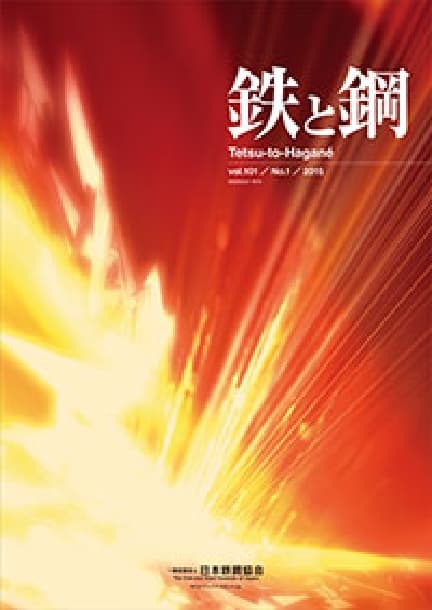Outlet Port Design of Swirling Flow Submerged Entry Nozzle for Slab Caster
Yuichi TSUKAGUCHI, Osamu NAKAMURA, Shinichiro YOKOYA, Shigeo TAKAGI
pp. 245-250
Abstract
We have proposed a technology of swirling flow formation in submerged entry nozzle as a fundamental and effective measure for controlling flow pattern in continuous casting mold. A joint study started in 1997 with Nippon Institute of Technology, Osaka University, Kyushu Refractories and Sumitomo Metal Industries to develop a swirling flow submerged entry nozzle with a swirling blade for steel casting. As a result of the collaboration, the swirling flow submerged entry nozzle for wide slab casting has developed in Wakayama Works, which improve productivity and surface quality of slabs and coils.
Swirling flow formation in the submerged entry nozzle can be effective for controlling flow pattern in the mold in the case with optimum design of outlet port. The outlet port of the swirling flow submerged entry nozzle should be designed adapting a characteristic of swirling downward flow in the nozzle. As a result of full-scale water model experiment, we achieved a conclusion of outlet port design that the narrow width of the outlet port is optimum for the swirling flow submerged entry nozzle. Otherwise, outlet flow from the port extends widely and stagnates in the mold.
Readers Who Read This Article Also Read
Tetsu-to-Hagané Vol.85(1999), No.1
Tetsu-to-Hagané Vol.92(2006), No.9
Tetsu-to-Hagané Vol.89(2003), No.2










